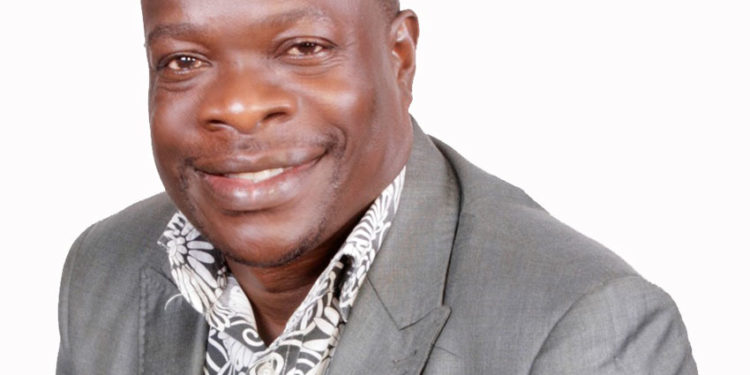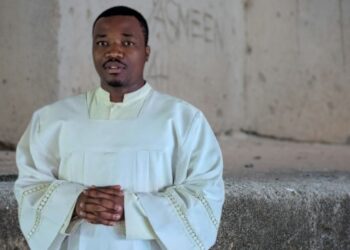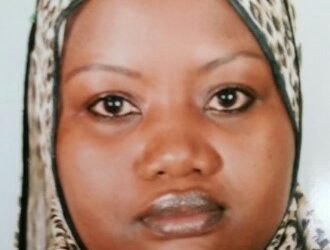As Ugandans enthusiastically looked forward to gaining independence on 9th October 2021, the National Theatre was also preparing, and as such students from Makerere Student Dramatic Society were warming up for the occasion.
However, a conflict ensued causing the group to abandon the performance. This conflict resulted in the governing body which comprised the colonial administrators to dismiss the Director of the National Theatre.
WHY? The Colonial Administrator accused the Director of trying to Africanize the National Theatre. Therefore on the eve of the Independence when the National Theatre should have been active instead went silent.
The National Theatre was birthed as a result of the outburst of plays that were emerging from the students at Makerere University. Earlier, Namirembe social centre (St. Paul’s Church Namirembe current Namirembe Cathedral) served as a performing space (Theatre facility) for the colonial administrators. It was here that Theatre performances started which was used as an evangelism tool by the church missionaries. The outburst of theatre activities at Makerere caused the need for more performing theatre spaces resulting in the building of the National Theatre which was officially opened in October 1959. There was also a need for a law under which this could operate hence the UNCC Act of 1959 which was later amended in 1965.
Before the colonialist theatre existed in form of epic performances though when colonialists came, there was an impression of theatre not being in existence in Uganda simply because the western world looked at this discipline differently from the way we did. As much as the western world viewed theatre from the point of acts on a proscenium arch stage and formal scripts in which form was introduced and became a standard, Ugandan theatre existed in form of festivals and traditional ceremonies (epic theatre). Through the format of traditional ceremonies and festivals, our predecessors passed on information from one generation to another hence a means to preserve, promote and popularize our culture. Additionally, through this form of theatre, an actor would appear before the king to narrate current affairs as well as entertain him.
Likewise, if the king wanted to communicate to his subjects, the same format was used. Such performances would take place in open spaces in the village centres. It, therefore, means that epic theatre at times involved audiences who played a vital role in in form of chorusing, clapping, and dancing. But on the other hand, it is worth noting though that formal scripted theatre existed in Uganda as early as 1946. One Locito Okechi had written a play entitled “Conversion of a heathen house into a Christian home” which was performed by students of Sir Samuel Baker and this performance is what brought Okot P’Bitek on scene.
With the introduction of drama as a tool for education and evangelism in church, the colonial agenda was put in the fast-forward mode of adopting English as the official language and language instruction in schools. Epic theatre therefore symmetrically faced erasure.
English plays were introduced and performed though mainly before the colonial administrators and few Ugandan elites. Ugandan schools drama and theatre were introduced and the surge resulted in St. Paul’s Church at Namirembe starting the drama festivals in the 140s. At St. Paul’s Church, regular dramatic skits were held after services aimed at reinforcing Christin’s messages. These were synonymously in schools since most of the schools were funded by the same colonial organizations.
Theatre in schools meant first and endorsement of the western theatre among Uganda, secondly it meant superimposition of western theatre onto Ugandans and finally, it meant that Ugandans could no longer be spectators of foreign culture rather it was a MUST for them to participate and promote this foreign culture.
Later in the early 1950s drama shifted from schools to the nation’s highest institution of learning, Makerere University. By end of the 1950s, Makerere had become optimistic about becoming home to drama and theatre besides cementing its role as an intellectual centre in Uganda. Later interhall dram completions were introduced though aimed at encouraging proficiency of English language. Students went ahead to start students’ journal entitled “pinpoint journal” in which they wrote literally works including plays.
It was at this point in time that Shakespeare was introduced and Macbeth produced as a full-length play. University students later started Makerere Free Travelling theatre.
Theatre soon went out of the confines of Makarere leading to emerging private theatre groups including City Players, Kayayu Film players, Kampala Shining Star Association Baganda Dramatic Society among others. It was also at this time that the colonial administrators at the National Theatre founded a drama school at Makerere University aimed at absorbing the public who had an interest in theatre.
After independence and the political changes created another genre of the theatre was introduced. Practitioners found themselves taking on another role of becoming the gatekeepers of the society and the state especially with President Idi Amin’s ascending to power whose leadership was characterized by oppression and dictatorship. Playwrights introduced new theatrical forms which included symbolism and wordless dramas integrated with poetry, song, and dance. This was meant to disguise political messages. Robert Serumaga and his Abafumi Company explored this new form. He wrote and staged “Majangwa” and “Rengamoi” in 1971 and 1972 respectively. Serumaga’s ability to camouflage sensitive political issues in his themes enabled him to stage his productions without Amin’s state agents noticing which he carried on as long as he could. On the other hand Byron Kawadwas use of history as a disguise in “Oluyimba lwa wankoko” was transparent and it did not take long for the State Agents to notice.
His failure to camouflage his themes cost his life. Kawadwa’s death resulted in many theatre artists fleeing into exile and hence theatre regression. Thought playwrights like John Ruganda continued to write while in exile.
The coming to power of the NRM government saw another genre and boost of theatre arising out of the abyss. Theatre was again used as an educational tool for political mobilization and later as a told for development as well dissemination of information and social-political education. Many NGOs and as well as the government adopted theatre in easing the implementation of their programs. Later we see theatre being used to address, create awareness and curb stigma when HIV/AIDs was at its peak. Plays such as “Ndiwulira” by Bakayimbira, Hydra, Gampisi, and Yellow Card among others took centre stage. It is also during this period that we see Alex Mukulu coming to the scene prominently with his “30 years of Banana”. Of recent, comedy had become the in thing and trendy based on improvisation.
With COVID 19 disruption of theatrical activities, we are yet to see another genre of theatre merging. Already with the digital transition, theatre is not spared. Though with theatre, one is expected to see, feel, and experience theatre hence undergoing catharsis which cannot be experienced digitally.
Robert Musiitwa is the Public Relations Officer at UNCC.
Do you have a story in your community or an opinion to share with us: Email us at editorial@watchdoguganda.com












